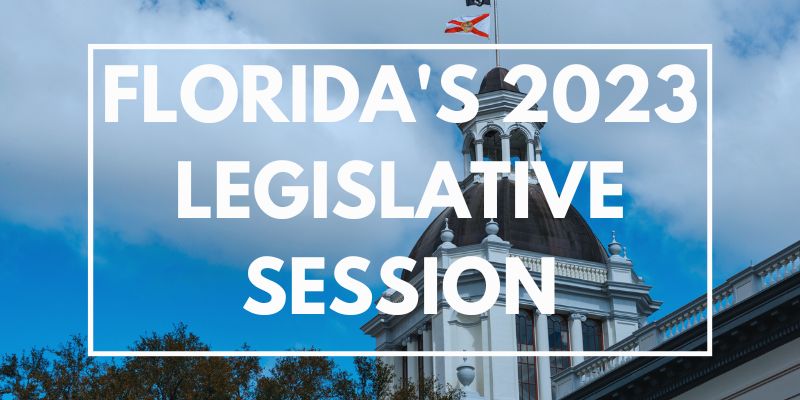
The Florida Legislature is made up of a 40-member State Senate and a 120-member State House.
Legislators serving in the 2023 session took office following the 2022 elections,
in which Republicans won supermajorities of 28-12 in the Senate and 85-35 in the House.
Find your representatives
Florida’s 2023 legislative session ended on May 5. It was presided over by Senate President Kathleen Passidomo, R-Naples, and House Speaker Paul Renner, R-Palm Coast.


In this post, I will outline some public policy changes the legislature made in the more significant bills passed, and some highlights of the record budget for the fiscal year that starts Jul. 1.
But first: given Republicans’ super-majority control of both chambers, how partisan was it?
How Partisan Was It?

I’ve been following the legislative session since pre-session committee meetings began in January. Based on what I read, I had the impression that it was a highly partisan session that did little more than give Gov. DeSantis his anti-woke, anti-Disney, “keep Florida free,” conservative agenda.
For example, “The Florida governor dominated the 60-day legislative session in Tallahassee that ended Friday, racking up conservative policy victories that will serve as the backbone of his soon-expected entry into the 2024 presidential race.” (Wall Street Journal, 5/5/23)
Then I remembered something Sen. Passidomo said at the Greater Naples Chamber of Commerce’s Post-Legislative Session discussion last year. She said that the majority of bills passed unanimously or nearly so, and expressed frustration that the media only covered the controversies. (This year, she will address the Chamber on Jun. 22. Click here for details.)
So, I reached out to her as I was writing this post. What were the numbers this year? To my surprise, she told me that:
- Of all 2023 Regular Session bills voted on in the Senate, 302 of 385 (78%) passed unanimously by the Senate.
- Of all 2023 Regular Session bills voted on in the Senate, 329 of 385 (85%) were passed with 3 or fewer Nays by the Senate.
It’s important to keep that in mind as you read this post.
With over 300 bills passed, I decided to focus on the bills Sen. Passidomo highlighted in her end-of-session constituent newsletter. From the news articles I clipped during the course of the session, I also included bills of interest to me that she did not mention. If I left out something important to you, please let me know.
I begin with the bills passed unanimously or nearly so, then turn to the more partisan and controversial ones.
For each bill below, click the bill number (SB = Senate bill; HB = House bill) to read the Analyses prepared by the staff of each legislative committee that considered the bill. They summarize the bill, describe the situation the bill seeks to address, the effect of proposed changes, the bill’s fiscal impact, and more.
Some Bills That Passed Unanimously or Nearly So
These are some of the bills that passed unanimously or nearly so:
- Live Local Act
- Expanding Access to Florida’s Wildlife Corridor
- Career and Technical Education, Work-Based Learning Opportunities
- Insurer Accountability
- Expanding KidCare
- Human Trafficking
- Golf Carts and Teens
Live Local Act

“With our Live Local Act, more Floridians can afford to live close to good jobs, where they can raise their families in the heart of the communities they serve,” Passidomo wrote of her priority bill SB 102.
The “largest investment in housing in the state’s history” provides $711 million in funds and tax incentives for affordable housing projects and has received praise from affordable housing advocates. However, the law has also drawn criticism because it prevents local rent controls and in certain situations, could preempt local government rules on zoning, building heights, and density. (NBC Miami, 3/29/23)
“By convincing the state Legislature to rule against the autonomy of municipalities through preemption, special-interest groups (e.g., an association of landlords) can pass widespread and potentially permanent policies without having to advocate in each municipality.” (Florida Policy Institute, 3/20/23)
The governor has signed the bill into law. It becomes effective Jul. 1, 2023.
Expanding Access to Florida’s Wildlife Corridor

SB 106 expands access to Florida’s iconic Wildlife Corridor by connecting the corridor to Florida’s Greenways and Trails System, the SUN Trail Network, and recreational pathways to heritage small towns across Florida. The corridor is envisioned as connecting 18 million acres of land from the Florida Keys to the Panhandle.
The new law appropriates a one-time $200 million investment to boost the planning, design, and construction of the SUN Trail Network, and increases from $25 million to $50 million the annual amount allocated to it from motor vehicle registration fees. (Senate Press Release, 4/11/23)
The governor has signed the bill into law. It becomes effective Jul. 1, 2023.
Career and Technical Education, Work-Based Learning Opportunities

SB 240 furthers legislative initiatives begun more than a decade ago to link education to the realities and opportunities of the economy. The new law “creates additional partnerships between local schools and businesses, expanding opportunities for students to gain on-the-job experience in meaningful, high-paying fields needed in our growing communities.” (Senate President Press Release)
The governor has signed the bill into law. It becomes effective Jul. 1, 2023.
Insurer Accountability
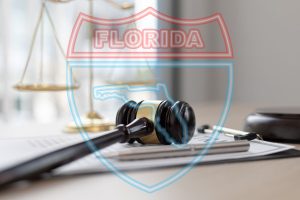
SB 7052 “continues our efforts to balance fair costs and protections for consumers, while strengthening state review and analysis of the insurance market, so that bad actors can be held accountable.” (Senate President Press Release)
But some insurers remain concerned that it could exacerbate reinsurers’ worries about the Florida market. (Insurance Journal, 4/28/23)
Signed by Officers and presented to the Governor. It becomes effective Jul. 1, 2023.
Expanding KidCare

For the first time in 25 years, the state expanded eligibility for the state’s children’s health insurance program, commonly called Florida KidCare. The passage of HB 121 comes after Speaker Renner “put his clout behind the Medicaid expansion, saying in his opening-day remarks that families should not lose access to a subsidized children’s health insurance policy just because their incomes have risen.” (Florida Politics, 5/4/23)
The bill has not yet been signed by the Officers or sent to the governor. It would become effective upon becoming a law.
Human Trafficking

Gov. DeSantis signed four bills to combat human trafficking, raise awareness of the signs and impacts of human trafficking, and impose critical reforms to hold human traffickers accountable. (Gov. DeSantis News Release, 5/16/23)
SB 7064, SB 1690, and SB 1210 passed unanimously in both chambers. They become effective Jul. 1, 2023.
HB 1465, which addresses situations in which firearms are involved in human trafficking, passed nearly unanimously. It becomes effective Oct. 1, 2023.
Golf Carts and Teens
Under HB 949, golf cart drivers under 18 will now have to be at least 15 with a learner’s permit or 16 with a driver’s license to legally operate one. Drivers 18 and older will need valid government-issued identification.
Some Contentious, Partisan Ones
These are some of the contentious, partisan bills that passed largely along party lines:
- Vouchers / “School Choice”
- Codifying Constitutional Right To Keep And Bear Arms / “Constitutional Carry”
- Abortion / “Heartbeat Protection”
- “Protecting Kids” / “Promoting Hate”
- Elections
- Immigration
- Litigation Reform
- Death Penalty
Vouchers / “School Choice”

HB 1 was the priority of House Speaker Renner. It makes all Florida students eligible for taxpayer-funded vouchers which can be used for private-school tuition and other expenses.
“Florida puts parents and students first by giving them the freedom to customize their education to fit every child’s unique needs,” Renner said. “Florida has delivered the greatest expansion of educational freedom in the nation and will unleash a wave of opportunity for millions of families.” (DeSantis News Release, 3/27/23)
“Democrats deride the roughly $8,500 award as a taxpayer supplement to wealthier parents with kids already enrolled in private education.” (Tallahassee Democrat, 3/27/23)
The governor has signed the bill into law. It becomes effective Jul. 1, 2023.
Codifying Constitutional Right To Keep And Bear Arms / “Constitutional Carry”
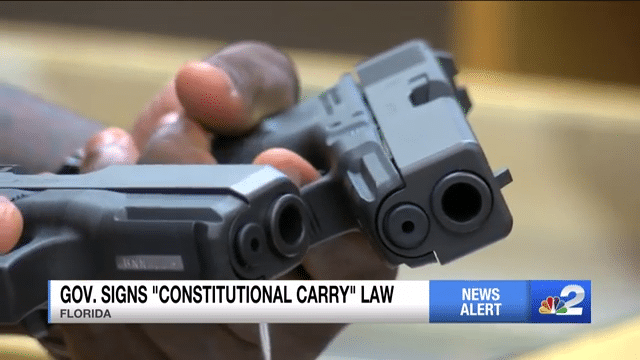
Under HB 543, Floridians will be able to carry concealed weapons without training or a permit.
Supporters said the changes will eliminate government red tape for law-abiding gun owners. The NRA praised the governor in a statement, noting that Florida is the 26th state to enact permitless carry legislation. Opponents argued it will make the state less safe. (Orlando Sentinel, 4/24/23)
The governor has signed the bill into law. It becomes effective Jul. 1, 2023.
Abortion / “Heartbeat Protection”
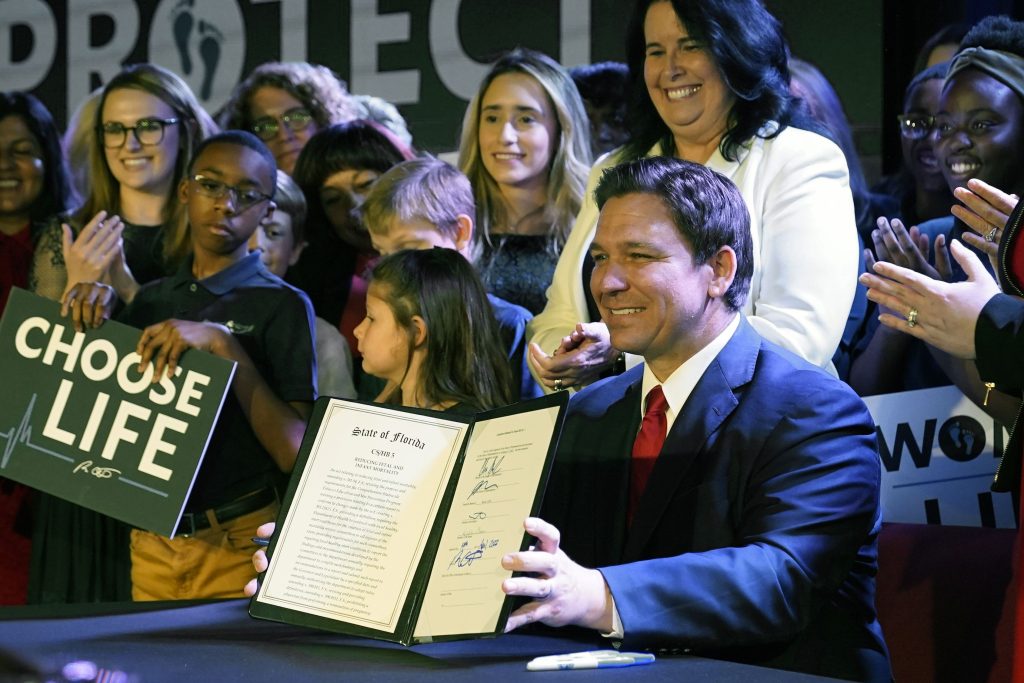
After passing a 15-week abortion limit in 2022, lawmakers and DeSantis went further this year and approved a plan (SB 300) to prevent abortions after six weeks of pregnancy.
“The Heartbeat Protection Act builds on Florida’s strong track record of protecting the most vulnerable, especially the unborn, and strengthens state efforts to promote adoption, and support families, with significant resources to benefit infants, young children, and parents, which we hope will encourage more Floridians in difficult and unplanned situations to choose life for their babies…. Our bill also includes strong and clear exceptions for rape, incest, and human trafficking, in addition to those already available for the life of the mother. We also clarify the existing exception for the horrible situation when parents are facing the heartbreaking diagnosis of a fatal fetal abnormality.” (Senate President Press Release)
“When politicians bar medical professionals from using their best medical judgment, outcomes for patients are worse. This is particularly true of lower income patients and people of color. This abortion ban will do great harm to Floridians, simply to further Ron DeSantis’ ambition to be president. Politicians should stay out of personal medical decisions.” (Florida Alliance of Planned Parenthood Affiliates, 3/21/23)
The governor has signed the bill. Its effective date is contingent upon a Florida Supreme Court ruling that a privacy clause in the state Constitution does not protect abortion rights.
In June 2022, a group of healthcare providers filed a lawsuit challenging the state’s 15-week abortion bill (HB 5) as unconstitutional under the Florida Constitution. In January 2023, the Florida Supreme Court announced it would hear the case but denied plaintiffs’ request to halt the law pending its decision in the case. (Tampa Bay Times, 1/24/23)
”Protecting Kids” / “Promoting Hate”
“Parents have the right to raise their children as they see fit, and government intervention should be a last resort,” Sen. Passidomo said.
SB 254 prohibits doctors from prescribing puberty blockers or hormones or using surgery to treat children diagnosed with gender dysphoria, building on rules recently adopted by the state’s medical boards.
“The law is a gross intrusion into private medical decisions, and it will inflict harm on individuals experiencing gender dysphoria and prevent them from accessing the health care they need.” (ACLU Florida, 5/18/23)
The governor has signed the bill into law. It became effective May 17, 2023.
HB 1069 prohibits classroom instruction on sexual orientation or gender identity in Pre-K through Grade 8 and expands the role of parents in reviewing and approving instructional materials. It also prohibits requiring students and teachers to refer to one another by a pronoun that does not correspond to that person’s sex.
“This impossible-to-comply-with bill intentionally blocks teachers from providing the safe and inclusive spaces that LGBTQ+ youth so desperately need.” (The Human Rights Campaign, 3/31/23)
The governor has signed the bill into law. It becomes effective Jul. 1, 2023.
SB 1438 prohibits minors from attending any “adult live performances.”
“The anti drag-show bill expands state law to include vague language that can be used to attack drag shows and performances, even though Florida law already prohibits exposing minors to shows considered sexually explicit or harmful.” (ACLU Florida, 5/18/23)
The governor has signed the bill into law. It became effective May 17, 2023.
HB 1521 prohibits gender-inclusive restrooms and changing facilities in government buildings and correctional institutions.
“In signing the anti-trans bathroom law, the state has added additional obstacles for transgender people to go about their daily lives like other people—and it opens the door to abuse, mistreatment, and more. This is quite literally state-sanctioned discrimination.” (ACLU Florida, 5/18/23)
The governor has signed the bill into law. It becomes effective Jul. 1, 2023.
Elections
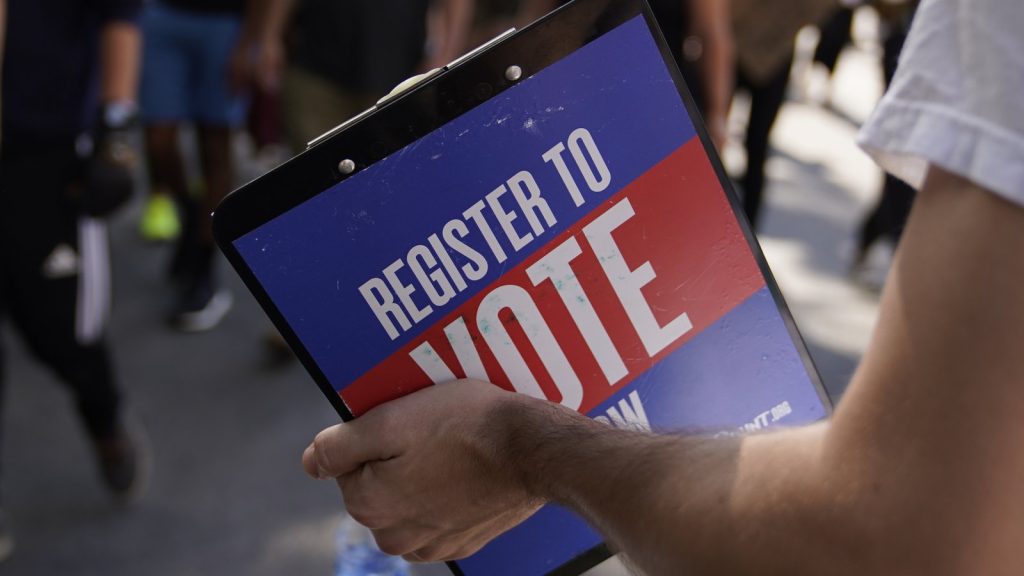
SB 7050 reignited a debate that has divided lawmakers since the 2020 election, with Republicans arguing the state needs to continue ramping up voting-security efforts and Democrats contending the changes are designed to make it harder for them to vote. (News Service of Florida, 5/19/23)
The bill would require voter-registration groups to provide receipts when they collect applications from people, shorten from 14 to 10 days the length of time groups have to turn applications in to elections supervisors, and impose a $50-per-day fine for each application that is turned in late. It would help clear the way for Gov. DeSantis to run for president in 2024.
“The League of Women Voters of Florida expresses deep disappointment in Florida’s state legislature as both chambers have passed SB 7050. The League believes the bill’s sweeping changes will make it harder for Floridians to register to vote and undermine Florida’s reputation as a gold standard of election administration.” (League of Women Voters of Florida Press Release, 4/28/23)
The bill has not yet been signed by the Officers or sent to the governor. With some exceptions, it would become effective July 1, 2023.
Immigration
Taking aim at federal border policies, lawmakers passed a bill (SB 1718) that includes stepping up requirements on businesses to check the immigration status of workers, cracking down on people who bring undocumented immigrants into Florida and collecting data about whether hospital patients are in the country legally. (News Service of Florida, 5/10/23)
“The legislation I signed today gives Florida the most ambitious anti-illegal immigration laws in the country, fighting back against reckless federal government policies and ensuring the Florida taxpayers are not footing the bill for illegal immigration.” (Gov. DeSantis News Release, 5/10/23)
The governor has signed the bill into law. It becomes effective Jul. 1, 2023.
Litigation Reform
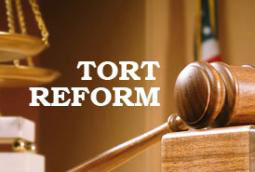
HB 837 makes major changes to the state’s tort laws, cutting down so-called frivolous lawsuits by limiting injury and insurance litigation and attorney fees.
“The vast majority of attorneys work very hard to provide sound legal representation for Floridians in … difficult circumstances,” wrote Passidomo. “Unfortunately, there are a few bad actors who are in the business to draw out civil cases as long as possible, collecting more and more fees from insurance companies.” (constituent newsletter)
Opponents point out that the bill will make it much more difficult for the average person to file a lawsuit when they feel they have been wronged by their insurance company. (NBC Miami, 3/24/23)
The governor has signed the bill into law. It became effective Mar. 24, 2023.
Death Penalty
HB 1297 allows death sentences for people who rape children under age 12.
The law is intended to get the conservative-controlled U.S. Supreme Court to reconsider a 2008 ruling that found it unconstitutional to use capital punishment in child sexual battery cases. (Associated Press, 5/1/23)
The governor has signed the bill into law. It becomes effective Oct. 1, 2023.
SB 450 eliminates a requirement for unanimous jury recommendations before judges can impose death sentences. It lowered the threshold to recommendations of eight of 12 jurors. The governor has signed the bill into law. It became effective Apr. 20, 2023.
The change was made in response to outrage over jurors who last fall blocked the death penalty for convicted Parkland killer Nikolas Cruz. (Politico Florida, 4/20/23)
The governor has signed the bill into law. It became effective Apr. 20, 2023.
A Record $117 Billion Budget
Passed unanimously in both the Senate and House.

Legislators passed a record $117 billion budget for the fiscal year that will start July 1. The record budget is about $7 billion larger than the spending plan for the current fiscal year. (News Service of Florida, 5/2/23)
“The record-busting $117 billion budget … would boost the Executive Office of the Governor’s budget by millions of dollars — and there are few guardrails on how that money may be spent.” (Florida Politics, 5/4/23)
Budget highlights
Budget highlights include:
- $4.9 billion for the Department of Environmental Protection, a $700 million bump from last year. Major appropriations include over $570 million for Everglades restoration projects, $1 billion for water quality improvements, and $300 million for the state’s sea level rise and flooding program. (City & State Florida, 5/4/23)
- $3.7 billion for hurricane relief. A large chunk of this spending was approved during a 2022 special session in response to Hurricane Ian and Hurricane Nicole. New appropriations include $350 million to the Hurricane Ian and Nicole Recovery Grant Program, $181 million to beach and bridge repair projects, and more. (City & State Florida, 5/4/23)
- $1.3 billion in tax cuts, with a heavy emphasis on eliminating sales taxes for select items but also a cut in the business rent tax, something favored by small businesses throughout the state. (Florida Politics, 5/4/23)
- Per pupil spending for PreK-12 public schools of $8,648.11 for the 2023-24 school year. “This will keep Florida near the bottom in the nation in per-student funding.” (Florida Education Association Frontline report, 5/5/23; Florida Education Finance Program (FEFP) for 2023-24)
- $711 million for the Live Local Act, including over $600 million for affordable housing programs and $100 million to Florida’s Hometown Heroes program. The funding comes as Florida is in the middle of an affordable housing crisis. (City & State Florida, 5/4/23)
- $25 million for the New College of Florida. “With this record funding … we are on our way to becoming the No. 1 classical liberal arts college in the country,” wrote interim president Richard Corcoran, DeSantis’s former education commissioner, who is paid $400,000 more than his predecessor at the college. (Inside Higher Ed, 5/3/23)
Reserves
Of particular note is that $10.9 billion that could have been spent was instead set aside for the future, $2 billion more than last year. Of that reserve money, $5.3 billion is unused from the General Revenue Fund, $4.1 billion is going to the budget stabilization fund or “rainy day fund,” and $1.4 billion is going to the Emergency Preparedness and Response fund. (City & State Florida, 5/4/23)
Still to Come
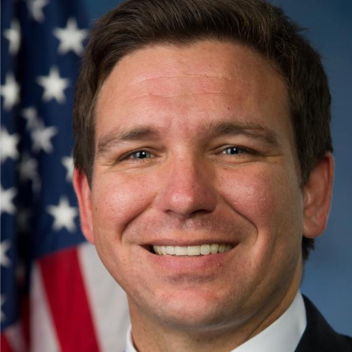
As of the day of this post, 203 bills have not yet reached the governor’s desk, including the budget, and 44 bills are pending in the governor’s office. (Florida Legislature Statistics Report, 5/21/23)
The governor has 15 days from the date a bill reaches his desk to either sign it, veto it, or do nothing. If he signs it or does nothing, the bill becomes law. If he vetoes it, it goes back to its house of origin, where, if two-thirds of the members of each house vote to override (set aside) it, it would become law.
The governor has line-item veto power over the budget. Last year, he vetoed “a whopping” $3.1 billion of the $113 billion budget the legislature passed. (Florida Politics, 6/2/22)
Stay tuned…
